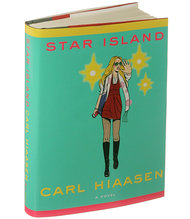 The ways in which a “menstrual stain” can signify embarrassment, shame, or even some sort of moral or career failure are surely infinite. If not a literal stain even being associated with menstruation in the most benign way can be seen as perilous. Sharra L. Vostral, a Keynote Speaker at the June 2011 SMCR conference, reviews this dynamic in her book, Under Wraps: A History of Menstrual Hygiene Technology.
The ways in which a “menstrual stain” can signify embarrassment, shame, or even some sort of moral or career failure are surely infinite. If not a literal stain even being associated with menstruation in the most benign way can be seen as perilous. Sharra L. Vostral, a Keynote Speaker at the June 2011 SMCR conference, reviews this dynamic in her book, Under Wraps: A History of Menstrual Hygiene Technology.
And until the tennis star Serena Williams broke the taboo in 2009, no established celebrity, actress or athlete was willing to appear in a menstrual product advertisement. [Editor’s Note: Brenda Vaccaro, with her “Make Mine a Double!” ads for Playtex tampons in the 1980s, was an earlier exception.] The notion that being publicly associated with menstruation (in fact, being a menstruator!) is a sign of failure or at least marginalization crops up in peculiar places.
For example, the novelist and journalist Carl Hiaasen is known for his snarky style as he lambastes Florida’s often bizarre and convoluted social political and ecological goings on. His most recent novel, Star Island, features a young actress named Ann DeLusia who has been hired to double for a teen pop star who is frequently so drunk or drugged that her career would be ruined if her dysfunctional behavior were captured by the ever-present paparazzi.
One of the ways Hiaasen lets the reader know that the actress is in the lower tier of Hollywood hopefuls and desperate for a role is by revealing that previously she has been limited to appearances in obscure films, failed series and menstrual product commercials. On three occasions he makes the same point:
- If the stand-in job didn’t work out, “Unfortunately, . . . Ann would again be waiting on line with her friends, auditioning for soap operas and sanitary-pad commercials.” (p. 25)
- At the start of her career “. . . she landed nonspeaking parts in TV commercials for an assortment of feminine hygiene products, including a recyclable contraceptive ring.” (p. 111)
- Her mother quit speaking to her after “. . . one of my mother’s so-called friends called her up after she saw me on a Maxipad commercial. . .” (p. 160)
It’s too bad that Hiaasen couldn’t come up with a more creative and original way of illustrating the character’s career limitations than by signing on to the trite, and fading, prejudices about appearing in menstrual product ads. He’s not as progressive as he might like to seem.


Trite indeed. Next time he needs such a reference, he can reveal that his character’s hand was featured in the Summer’s Eve talking vagina campaign.